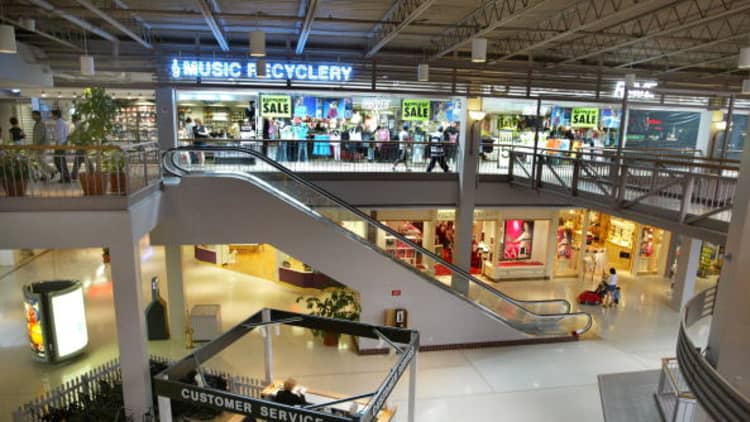
Converting malls into multi-service mini villages may be the key to using unoccupied real estate in the retail market, said Amanda Nicholson, professor of retail practice at Syracuse University.
"We don't need all the mall space we have just for shopping," Nicholson told CNBC on Monday.
Instead, Nicholson suggested integrating residential units, health clubs, grocery stores and upscale restaurants into malls to create more experiences.
"You'd have a place to live with a place to shop, with a place to work out, with a place to maybe go to a luxury movie theater and have dinner," Nicholson said on "Power Lunch."
Nicholson said certain longstanding rules about how malls are run should be broken.
"You don't have residential units in malls," she said. "Well, why not? Why are we always segregating so much?"
Retailers such as Toys R Us, Best Buy and Sam's Club have all announced mass store closures this year, leaving the fate of many malls across the nation uncertain and landlords desperate to fill empty spaces.
Stephen Sadove, former Saks chairman and chief executive officer, said the key to creating mixed-use centers is location.
"The dog malls, these ones that are going away, they should go away," the founding partner of JW Levin Management Partners said of Class B and Class C malls, many of which are older properties in hard-to-get-to places. "Some of these should just be torn down."
Millions of square feet of unoccupied mall space are up for grabs, according to Nicholson, including parking lot space.
Malls in the top Class A level will continue to grow, Sadove said on "Power Lunch." But do so they'll need innovative ideas such as fine dining, pop-up shops and entertaining attractions, such as Nordstrom's plans for a storewide liquor license in New York City.
"If it's a big mall, and it's in an interesting area, build a Topgolf," Sadove suggested. "People are dying to play golf at one of these things."
"You've got to make the store fun," he said.
Meanwhile, despite what some call the death of brick-and-mortar stores as more consumers shop online, retail sales as a whole grew 4 percent last year, Sadove said.
"The fact is that people are still spending money on eating and going out and shopping," Nicholson said. "They want to socialize. They're still human."
"But they want to do it in a way that is fundamentally different than what we were doing 40 years ago in a one-level mall with a smelly food court in the center," she said.
With the new model of consumption focusing on the experiential, Nicholson said the retailers that provide consumers a way to "do more than just buy products [are] probably going to win this game."


